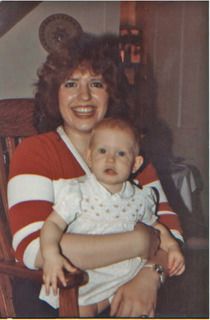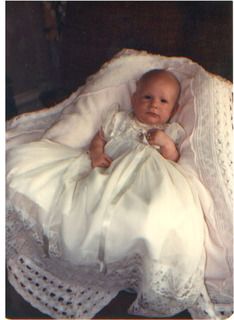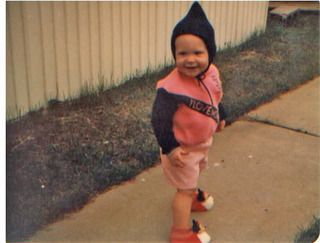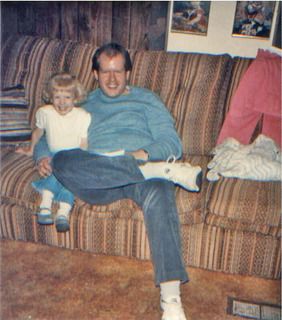Search This Blog
Friday, April 30, 2010
Making the organ donation decision for a child
Wednesday, April 28, 2010
Another follow up and Praise report
Check her out now!!! Click for the news story done on her

Tuesday, April 27, 2010
Gabriella's arm
Sunday, April 25, 2010
NDLM - Simple ways to help now
Friday, April 23, 2010
Loma Linda April Appointment
Journeys in Speech
Thursday, April 22, 2010
NDLM - How to become a donor
Wednesday, April 21, 2010
Another year cooler...
When I turned 27, I threw this big hissyfit. I had a "hard time" with 27 and wasn't all that thrilled about my birthday. I was also anticipating Gabriella's heart cath, which was done April 24 last year. On my birthday last year, Gabriella was not yet diagnosed. She was 'healthy'.
Monday, April 19, 2010
Fabric fundraising
Fabric, anyone?
Sunday, April 18, 2010
On the edge: Megans Story
- 3pm, they had to do an emergency procedure to stop infection and assist her breathing. She was placed on a temporary respirator.
- 650pm he posted that she was improving with just a little oxygen.
- 920pm he wrote a cry for prayer that she become better in the event a heart become available.
- 40 minutes later, Megan's family got the notice that a donor heart for her was matched!!!!!!! Her dad writes: "10:00pm 'PRAISE GOD FROM WHOM ALL BLESSINGS FLOW'. We went from "Megan is too sick to receive a transplant" to "WE HAVE A HEART" in 12 hours. Only God can work a miracle like this. Thank You Jesus!!!"
Friday, April 16, 2010
NDLM - Understanding death before donation

Wednesday, April 14, 2010
Current Statistics
(all information according to www.unos.org)
As of April 14, 2010 there are 3,175 people (adults and children) in the United States waiting for a heart.
(OPTN data from April 9, 2010)
Nationwide:
There are 89 kids waiting for a heart in the age category 1 to 5 years in the whole United States.
There are 21 one to five year olds waiting for a heart in Gabriella's blood type of A.
There are 14 kids ages 1 to 5 waiting for a heart in the Region 5.
There are 3 one to five year old kids matching her blood type of A in Region 5.
About our false alarm
Possible Heart Offer
Gabriella is not primary but it is a match. Please be in prayer for us, and the family who lost their child. We will know more in a while and I will update.
Honestly. I'm freaking out. As prepared as I was, I wasn't prepared for the feelings I have right now.
Tuesday, April 13, 2010
NDLM - Living Donation
Who can be a living donor?
While many people are willing to be living donors, not everyone has the qualities necessary to participate in living donation. Donors must be chosen carefully in order to avoid outcomes that are medically and psychologically unsatisfactory.
While the individual circumstances of each potential donor are discussed privately and tested to determine compatibility, all potential donors must be genuinely willing to donate, physically fit, in good general health; and free from high blood pressure, diabetes, cancer, kidney disease and heart disease.
Individuals considered for living donation are usually between 18-60 years of age. Gender and race are not factors in determining a successful match.
Types of living donation
Although not all transplant centers perform all types, living donation has expanded to include many variations since the practice began in 1954, including:
Related - Blood relatives of transplant candidates including brothers, sisters, parents, children (over 18 years of age), aunts, uncles, cousins, half brothers & sisters, nieces and nephews.
Non-Related - Individuals emotionally close to, but not related by blood to transplant candidates, including spouses, in-law relatives, close friends, coworkers, neighbors or other acquaintances.
Non-Directed - Individuals who are not related to or known by the recipient, but make their donation purely out of selfless motives. This type of donation is also referred to as anonymous, altruistic, altruistic stranger, and stranger-to-stranger living donation.
Paired Donation - Consists of two kidney donor/recipient pairs whose blood types are not compatible. The two recipients trade donors so that each recipient can receive a kidney with a compatible blood type. Once the evaluations of all donors and recipients are completed, the two kidney transplant operations are scheduled to occur simultaneously.
Kidney Donor Waiting List Exchange - If a paired exchange cannot be found, living donors in certain areas of the country may be eligible for living kidney donor list exchange. In this type of exchange, a kidney donor who is not compatible with their intended recipient offers to donate to a stranger on the waiting list. In return, the intended recipient advances on the waiting list for a deceased donor kidney. This type of living donation is also referred to as list-paired exchange and living donor/deceased exchange.
Blood Type Incompatible - This type of donation allows candidates to receive a kidney from a living donor who has an incompatible blood type. To prevent immediate rejection of the kidney, recipients undergo plasmapheresis treatments before and after the transplant to remove harmful antibodies from the blood, as well as the removal of the spleen at the time of transplant.
Positive Crossmatch - The positive crossmatch process is similar to the process used for ABO-incompatible living-donor kidney transplants, where patients can receive kidneys from living donors with blood types incompatible with their own. Similarly, treating patients with plasmapheresis also greatly reduces the chance of organ rejection in patients with elevated antibody levels. Previously, these elevated antibody levels made tissue rejection almost certain. Positive crossmatch live donor kidney transplants are usually only performed if no other live donors (with a negative crossmatch) exist.

Saturday, April 10, 2010
Hakuna Matata

If you looked at my albums from our SoCal trip, you probably already saw this picture. I spiced it up a bit on Photoshop and had to repost it.
Matthew 6: 25-34 “That is why I tell you not to worry about everyday life—whether you have enough food and drink, or enough clothes to wear. Isn’t life more than food, and your body more than clothing? Look at the birds. They don’t plant or harvest or store food in barns, for your heavenly Father feeds them. And aren’t you far more valuable to him than they are? Can all your worries add a single moment to your life?
“And why worry about your clothing? Look at the lilies of the field and how they grow. They don’t work or make their clothing, yet Solomon in all his glory was not dressed as beautifully as they are. And if God cares so wonderfully for wildflowers that are here today and thrown into the fire tomorrow, he will certainly care for you. Why do you have so little faith?
“So don’t worry about these things, saying, ‘What will we eat? What will we drink? What will we wear?’ These things dominate the thoughts of unbelievers, but your heavenly Father already knows all your needs. Seek the Kingdom of God above all else, and live righteously, and he will give you everything you need.
“So don’t worry about tomorrow, for tomorrow will bring its own worries. Today’s trouble is enough for today.
NDLM - Organ Matching
- A living organ donor can give a kidney, or a portion of the liver, lung, intestine, or pancreas
- A deceased organ donor can give kidneys, pancreas, liver, lungs, heart, intestinal organs
- Only 30% of kids who need a transplant actually get it
- Unlike organs, tissues can be donated up to 24 hours after a person's heart has stopped beating.
- Every 11 minutes another name is added to the national organ transplant waiting list.
- An average of 18 people die each day from the lack of available organs for transplant.
- In 2008, there were 7,984 deceased organ donors and 6,218 living organ donors resulting in 27,961 organ transplants.
- 90% of Americans say they support donation, but only 30% know the essential steps to take to be a donor.

Wednesday, April 7, 2010
More kiddos get sparkly
NDLM - Religious Views on Donation
Reposting this for my National Donate Life Month series!
I thought this information to be highly interesting!!! (Read the Seventh Day Adventist position, this is the faith base of the hospital Gabriella will be at!)
AME & AME Zion (African Methodist Episcopal)
Organ and tissue donation is viewed as an act of neighborly love and charity by these denominations. They encourage all members to support donation as a way of helping others.Amish
The Amish consent to donation if they know it is for the health and welfare of the transplant recipient. They believe that since God created the human body, it is God who heals. However, they are not forbidden from using modern medical services, including surgery, hospitalization, dental work, anesthesia, blood transfusions, or immunization.Assembly of God
The Church has no official policy regarding donation. The decision to donate is left up to the individual. Donation is highly supported by the denomination.Baptist
Though Baptists generally believe that organ and tissue donation and transplantation are ultimately matters of personal conscience, the nation's largest Protestant denomination, the Southern Baptist Convention, adopted a resolution in 1988 encouraging physicians to request organ donation in appropriate circumstances and to '...encourage voluntarism regarding organ donations in the spirit of stewardship, compassion for the needs of others and alleviating suffering.' Other Baptist groups have supported organ and tissue donation as an act of charity and leave the decision to donate up to the individual.Buddhism
Buddhists believe organ donation is a matter that should be left to an individual's conscience. Reverend Gyomay Masao Kubose, president and founder of The Buddhist Temple of Chicago and a practicing minister, says, “We honor those people who donate their bodies and organs to the advancement of medical science and to saving lives.” The importance of letting loved ones know your wishes is stressed.Catholicism
Catholics view organ donation as an act of charity, fraternal love and self sacrifice. Transplants are ethically and morally acceptable to the Vatican. Pope John Paul II stated, "The Catholic Church would promote the fact that there is a need for organ donors and that Christians should accept this as a “challenge to their generosity and fraternal love” so long as ethical principles are followed."Christian Church (Disciples of Christ)
The Christian Church encourages organ and tissue donation, stating that we were created for God's glory and for sharing God's love. A 1985 resolution, adopted by the General Assembly, encourages “members of the Christian Church (Disciples of Christ) to enroll as organ donors and prayerfully support those who have received an organ transplant."The Church of Christ, Scientist
Christian Scientists do not take a specific position on transplants or organ donation. They normally rely on spiritual, rather than medical means for healing. Organ and tissue donation is an issue that is left to the individual church member.Episcopal
The Episcopal Church recognizes the life-giving benefits of organ, blood, and tissue donation. All Christians are encouraged to become organ, blood, and tissue donors "as part of their ministry to others in the name of Christ, who gave His life that we may have life in its fullness."Greek Orthodox
According to Reverend Dr. Milton Efthimiou, Director of the Department of Church and Society for the Greek Orthodox Church of North and South America, "The Greek Orthodox Church is not opposed to organ donation as long as the organs and tissue in question are used to better human life, i.e., for transplantation or for research that will lead to improvements in the treatment and prevention of disease."Gypsies
Gypsies tend to be against organ donation. Although they have no formal resolution, their opposition is associated with their belief in the after-life. Gypsies believe that for one year after a person dies, the soul retraces its steps. All parts of the body must remain intact because the soul maintains a physical shape.Hinduism
Hindus are not prohibited by religious law from donating their organs, according to the Hindu Temple Society of North America. In fact, Hindu mythology includes stories in which parts of the human body are used for the benefit of other humans and society. The act is an individual decision.Independent Conservative Evangelical
Generally, Evangelicals have had no opposition to organ and tissue donation. Donation is an individual decision.Islam
Muslims believe in the principle of saving human lives, and permit organ transplants as a means of achieving that noble end.Jehovah's Witnesses
Jehovah's Witnesses believe donation is a matter best left to an individual's conscience. All organs and tissue, however, must be completely drained of blood before transplantation.Judaism
All four branches of Judaism (Orthodox, Conservative, Reform, and Reconstructionist) support and encourage donation. Said Orthodox Rabbi Moses Tendier, "if one is in the position to donate an organ to save another's life, it's obligatory to do so, even if the donor never knows who the beneficiary will be. The basic principle of Jewish ethics - 'the infinite worth of the human being' - also includes donation of corneas, since eyesight restoration is considered a life-saving operation." In 1991, the Rabbinical Council of America (Orthodox) approved organ donations as permissible, and even required, from brain-dead patients. The reform movement looks upon the transplant program favorably. Rabbi Richard Address, Director of the Union of American Hebrew Congregations Bio-Ethics Committee, stated that, "Judaic Responsa materials provide a positive approach and by and large the North American Reform Jewish community approves of transplantation."Lutheran
In 1984, the Lutheran Church in America passed a resolution stating that donation contributes to the well-being of humanity and can be "...an expression of sacrificial love for a neighbor in need." They call on members to consider donating organs and to make any necessary family and legal arrangements, including the use of a signed donor card.Mennonite
Mennonites have no formal position on donation, but are not opposed to it. They leave the decision to the individual or his/her family.Moravian
The Moravian Church has made no statement addressing organ and tissue donation or transplantation. Robert E. Sawyer, President, Provincial Elders Conference, Moravian Church of America, Southern Province, states, “There is nothing in our doctrine or policy that would prevent a Moravian pastor from assisting a family in making a decision to donate or not to donate an organ.” It is, therefore, a matter of individual choice.Mormons
The Church of Jesus Christ of Latter-Day Saints considers the decision to donate organs a selfless act that often results in great benefit and the decision to donate for medical purposes, or the decision to authorize donation from a deceased family member is made by the individual or deceased member's family. The Church states that the decision should be made after receiving competent medical counsel and confirmation through prayer.Pentecostal
Pentecostals leave the decision to donate up to the individual.Presbyterian
Presbyterians encourage and endorse donation. It's an individual's right to make decisions regarding his or her own body.Seventh-Day Adventist
Donation and transplantation are strongly encouraged. Seventh-Day Adventists have many transplant hospitals, including Loma Linda in California, which specializes in pediatric heart transplantation.Shinto
In Shinto, the dead body is considered impure and dangerous, and thus quite powerful. Injuring a dead body is a serious crime. It is difficult to obtain consent from bereaved families for organ donation or dissection for medical education or pathological anatomy because Shintos relate donation to injuring a dead body. Families are concerned that they not injure the itai, the relationship between the dead person and the bereaved people.Society of Friends (Quakers)
Quakers do not have an official position. They believe that organ and tissue donation is an individual decision.Unitarian Universalist
Organ and tissue donation is widely supported by Unitarian Universalists. They view it as an act of love and selfless giving.United Church of Christ
Reverend Jay Lintner stated, “United Church of Christ people, churches and agencies are extremely and overwhelmingly supportive of organ sharing. The General Synod has never spoken to this issue because, in general, the Synod speaks on more controversial issues, and there is no controversy about organ sharing, just as there is no controversy about blood donation in the denomination. While the General Synod has never spoken about blood donation, blood donation rooms have been set up at several General Synods. Similarly, any organized effort to get the General Synod delegates or individual churches to sign organ donation cards would meet with generally positive responses.”United Methodist
The United Methodist Church issued a policy statement regarding organ and tissue donation. In it, they state that, "The United Methodist Church recognizes the life-giving benefits of organ and tissue donation, and thereby encourages all Christians to become organ and tissue donors by signing and carrying cards or driver's licenses, attesting to their commitment of such organs upon their death, to those in need, as a part of their ministry to others in the name of Christ, who gave his life that we might have life in its fullness.” A 1992 resolution states, “Donation is to be encouraged, assuming appropriate safeguards against hastening death and determination of death by reliable criteria." The resolution further states, “Pastoral-care persons should be willing to explore these options as a normal part of conversation with patients and their families.”
Uneventful and more waiting thoughts...

Tuesday, April 6, 2010
Gabriella's Heart blog goes Carbon Neutral
I have submitted my blog commitment, and will display the below posted badge in my sidebar, therefore kaufDA is planting a tree in my blog’s name. Sure, it's small, but imagine if every blogger did this! Every tiny step each person makes for our children's future will add up to be a bigger change.

Gabriella Bands - Ordering Info
The red and blue colors of the band symbolize Congenital Heart Defects. The wording on the bands is a simple statement, but we feel it is more of a reminder: PRAY FOR GABRIELLA.
Each band is $2, and that includes shipping. All the payments for the bands are being depositied directly into our PayPal account and used for all the same transplant related expenses as any past donations.
Do you sport a Gabriella band yet??
Monday, April 5, 2010
Presidential Proclamation - National Donate Life Month
Today, over 100,000 Americans await donation on the Organ Procurement and Transplantation Network waiting list. Many will receive a lifesaving transplant, but, for some, help will not come fast enough. Whether they are coping with kidney failure or recovering from severe injuries, these individuals' lives depend on the compassion of a loved one or a complete stranger. Across our country, we face a shortage of donors and an urgent need for help. We must respond with the spirit of generosity that has always defined our national character.
Each organ or tissue donor can save many lives, and becoming one is simple: join your State's donor registry, indicate your decision on your driver's license, and inform loved ones of your decision. There is no age limit for donors, and because some conditions and blood types are more common in certain ethnic and racial populations, the Department of Health and Human Services especially encourages minorities to consider donation.
Visit OrganDonor.gov to learn more about the urgent need for donors and to find resources on how to donate. Together, we can save lives and give hope to countless American families.
NOW, THEREFORE, I, BARACK OBAMA, President of the United States of America, by virtue of the authority vested in me by the Constitution and the laws of the United States, do hereby proclaim April 2010 as National Donate Life Month. I call upon health care professionals, volunteers, educators, government agencies, faith-based and community groups, and private organizations to join forces to boost the number of organ, tissue, blood, and stem cell donors throughout our Nation.
IN WITNESS WHEREOF, I have hereunto set my hand this first day of April, in the year of our Lord two thousand ten, and of the Independence of the United States of America the two hundred and thirty-fourth.
New Badge/Icon
I have updated the web badge to support Gabriella's Heart website. If you have a blog or webpage, and would like to add or update your Gabriella icon, please grab the new link below!
Sunday, April 4, 2010
Mason gets sparkly!
The most tears I have shed this day are in gratitude for our donor family. On this Easter morning they had to say goodbye to their sweet child. They donated their child's heart on Easter almost like our Savior sacrificed his life for us. He then resurrected on Easter just like our Mason has been given a new chance at life this day. I will be forever grateful to this family and pray that they will know of the joy they have brought to our family. I pray that on each Easter they will think of the gift of life they have shared with our family!


NDLM - Myths of Organ Donation
Enough people to populate a small city — nearly 100,000 — are on the U.S. organ transplant waiting list, waiting for an organ donation. On an average day, about 77 people receive organ transplants. But thousands more never get that call from their transplant center saying a suitable donor organ — and a second chance at life — has been found.
It can be hard to think about what's going to happen to your body after you die, let alone donating your organs and tissue. But being an organ donor is a generous and worthwhile decision that can be a lifesaver. Understanding organ donation can make you feel better about your choice. If you've delayed your decision to be a donor because of possibly inaccurate information, here are answers to some common organ donation myths and concerns.
Myth No. 1. If I agree to donate my organs, my doctor or the emergency room staff won't work as hard to save my life. They'll remove my organs as soon as possible to save somebody else.
Reality. When you go to the hospital for treatment, doctors focus on saving your life — not somebody else's. You'll be seen by a doctor whose specialty most closely matches your particular emergency. The doctor in charge of your care has nothing to do with transplantation.
Myth No. 2. Maybe I won't really be dead when they sign my death certificate. It'll be too late for me if they've taken my organs for transplantation. I might have otherwise recovered.
Reality. Although it's a popular topic in the tabloids, in reality, people don't start to wiggle a toe after they're declared dead. In fact, people who have agreed to organ donation are given more tests to determine that they are truly dead than are those who haven't agreed to organ donation.
Myth No. 3. Organ donation is against my religion.
Reality. Organ donation is consistent with the beliefs of most religions. This includes Catholicism, Protestantism, Islam and most branches of Judaism. If you're unsure of or uncomfortable with your faith's position on donation, ask a member of your clergy. Another option is to check the federal Web site OrganDonor.gov, which provides religious views on organ donation and transplantation by denomination.
Myth No. 4. I'm under age 18. I'm too young to make this decision.
Reality. That's true, in a legal sense. But your parents can authorize this decision. You can express to your parents your wish to donate, and your parents can give their consent knowing that it's what you wanted. Children, too, are in need of organ transplants, and they usually need organs smaller than those an adult can provide.
Myth No. 5. I want my loved one to have an open-casket funeral. That can't happen if his or her organs or tissues have been donated.
Reality. Organ and tissue donation doesn't interfere with having an open-casket funeral. The donor's body is clothed for burial, so there are no visible signs of organ or tissue donation. For eye donation, an artificial eye is inserted, the lids are closed, and no one can tell any difference. For bone donation, a rod is inserted where bone is removed. With skin donation, a very thin layer of skin similar to a sunburn peel is taken from the donor's back. Because the donor is clothed and lying on his or her back in the casket, no one can see any difference.
Myth No. 6. I'm too old to donate. Nobody would want my organs.
Reality. There's no defined cutoff age for donating organs. Organs have been successfully transplanted from donors in their 70s and 80s. The decision to use your organs is based on strict medical criteria, not age. Don't disqualify yourself prematurely. Let the doctors decide at your time of death whether your organs and tissues are suitable for transplantation.
Myth No. 7. I'm not in the greatest health, and my eyesight is poor. Nobody would want my organs or tissues.
Reality. Very few medical conditions automatically disqualify you from donating organs. The decision to use an organ is based on strict medical criteria. It may turn out that certain organs are not suitable for transplantation, but other organs and tissues may be fine. Don't disqualify yourself prematurely. Only medical professionals at the time of your death can determine whether your organs are suitable for transplantation.
Myth No. 8. I would like to donate one of my kidneys now, rather than wait until my death. But I hear you can't do that unless you're a close family member of someone in need.
Reality. While that used to be the case, it isn't any longer. Whether it's a distant family member, friend or complete stranger you want to help, you can donate a kidney through certain transplant centers.
If you decide to become a living donor, you will undergo extensive questioning to ensure that you are aware of the risks and make sure you're giving away your kidney out of pure goodwill and not in return for financial gain. You will also undergo testing to determine that your kidneys are in good shape and that you can live a healthy life with just one kidney.
You can also donate blood or bone marrow during your lifetime. Contact your local chapter of the American Red Cross for details on where you can donate or sign up.
Reality. The rich and famous aren't given priority when it comes to allocating organs. It may seem that way because of the amount of publicity generated when celebrities receive a transplant, but they are treated no differently from anyone else. In fact, the United Network for Organ Sharing (UNOS), the organization responsible for maintaining the national organ transplant network, subjects all celebrity transplants to an internal audit to make sure the organ allocation was appropriate.
Myth No. 10. My family will be charged if I donate my organs.
Reality. The organ donor's family is never charged for donating. The family is charged for the cost of all final efforts to save your life, and those costs are sometimes misinterpreted as costs related to organ donation. Costs for organ removal go to the transplant recipient.
Thursday, April 1, 2010
National Donate Life Month
April 1 kicks off National Donate Life Month, or as I might refer to it occasionally, NDLM. I plan on making multiple entries this month solely dedicated to information and education on donation from both the donor and recipient aspect, so get ready!
Though April's focus is Donate Life Month, this is a year round, decade after decade, growing necessity. Do you have any questions you want to ask that I can address in the posts to come? Please, go to http://www.formspring.me/GabriellasHeart and ask me anything!! I have learned so much through Gabriella's journey, and am still learning, so if I don't have the answer I will consult my fabulous resources who do!









